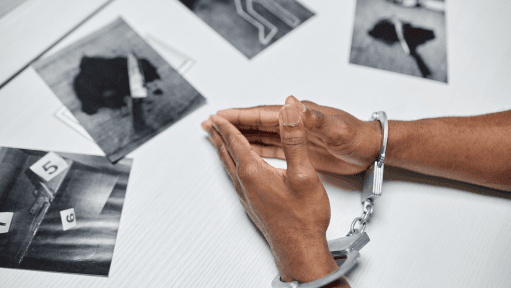
Unlocking Justice in the UAE: Understanding Bail Procedures and Investigation Process
Each step, from filing complaints to the roles of the Public Prosecution and courts, is governed by Federal Law No. 35 of 1992 on Criminal Procedural Law
Understanding the legal framework of the United Arab Emirates (UAE) requires familiarity with bail procedures and the investigative process in case of legal issues. These aspects are crucial for protecting the rights of those accused of crimes while maintaining the integrity of criminal proceedings.
From the initial filing of complaints with local authorities to the critical roles played by the Public Prosecution and the courts, every step is regulated by Federal Law No. 35 of 1992 concerning Criminal Procedural Law.
This article provides a comprehensive overview of both the bail procedures and the investigation process in the UAE, highlighting the conditions, rights and responsibilities involved at each stage.
Familiarity with these procedures is vital for anyone involved in legal matters within the UAE, promoting transparency, adherence to legal norms and the protection of rights throughout the judicial process.
Investigation Process in the UAE
Criminal proceedings in the UAE commence with the filing of a complaint at the local police station where the offence occurred. During the initial stages of the investigation:
Police Involvement: The police gather statements from involved parties. Within 48 hours of receiving the complaint, the local police refer the case to the Public Prosecution.
Role of Public Prosecution: The Public Prosecution then assumes responsibility, questioning the accused within 24 hours of their referral from the police. Based on the evidence gathered, the Public Prosecution decides whether to order the accused's arrest or release under Article 47 of the Criminal Procedures Law.
Legal Framework: Federal Law No. 35 of 1992, as amended, outlines the comprehensive procedures for criminal cases in the UAE. It delineates the methodology for investigation, trial procedures, judgement rendering, conditions for appeal, and enforcement of judgements.
Exclusive Jurisdiction: Article 7 of the Criminal Procedures Law grants exclusive jurisdiction to the Public Prosecution to initiate and oversee criminal proceedings until a final judgement is reached. The Public Prosecution is integral in investigating charges, determining criminal involvement, and referring cases to competent courts.
International Cooperation: The Public Prosecution handles issues related to the surrender and extradition of criminals per international conventions, often collaborating with organisations like the International Criminal Police Organisation (Interpol).
Filing Criminal Complaints: As per Article 10 of the Criminal Procedures Law, criminal actions require written or verbal complaints by the victim or their legal representative. Such complaints are necessary for specific offences, including theft, breach of trust, and insults, which must be filed within three months of discovering the crime unless specified otherwise by law.
Special Cases: Complaints can be lodged directly with any public authority officer if the accused is caught red-handed. Additionally, a single complaint from any victim suffices to initiate action in cases involving multiple victims or accused parties.
Protection of Vulnerable Victims: For victims under 15 years old, mentally challenged individuals, or when crimes target their property, complaints must be submitted by their legal guardians. In cases of conflict of interest or absence of representation, the Public Prosecution acts on behalf of the victim.
Language Requirements: All investigations by the Public Prosecution are conducted in Arabic. In situations where the accused, litigants, witnesses, or other critical parties do not speak Arabic, the prosecution may engage an interpreter after administering an oath.
Bail Procedures in the UAE
Definition and Purpose: Bail is a conditional release granted to an accused person pending trial to ensure their presence at legal proceedings and prevent unnecessary detention.
Conditions for Granting Bail: Article 111 of the Criminal Procedural Law restricts bail for offences punishable by the death penalty or life imprisonment. Bail is typically granted for minor crimes and misdemeanours, such as cheque bounce cases, upon application to:
Police: Before transferring the case to the Public Prosecution.
Public Prosecution: During investigation stages.
Court: Before final judgement issuance.
Types of Bail Guarantees
Personal Guarantee: Requires surrendering a valid passport, either of the accused or a third party, as collateral.
Financial Guarantee: Involves depositing a specified amount with the court, refundable after trial completion if all conditions are met.
Combined Guarantees and Bail Document: Depending on the case, both personal and financial guarantees may be required. Upon release on bail, the accused receives a "Qafala" document outlining bail conditions and consequences for non-compliance.
Responsibilities of Bail Guarantor
The bail guarantor signs a bond detailing conditions and obligations. They ensure the accused complies with bail terms and attends all required court proceedings.
Revocation of Bail
Article 115 of the Criminal Procedural Law allows bail revocation for non-compliance with conditions or new circumstances affecting the case. The Public Prosecution or court may initiate revocation and order re-arrest if necessary.
Legal Framework
Governed by Federal Law No. 35 of 1992, the Criminal Procedural Law specifies bail procedures, ensuring fairness and adherence to legal requirements. Understanding these procedures is essential for individuals navigating the UAE legal system, ensuring compliance with bail conditions and procedural obligations during legal proceedings.
For any enquiries or information, contact ask@tlr.ae or call us on +971 52 644 3004. Follow The Law Reporters on WhatsApp Channels.